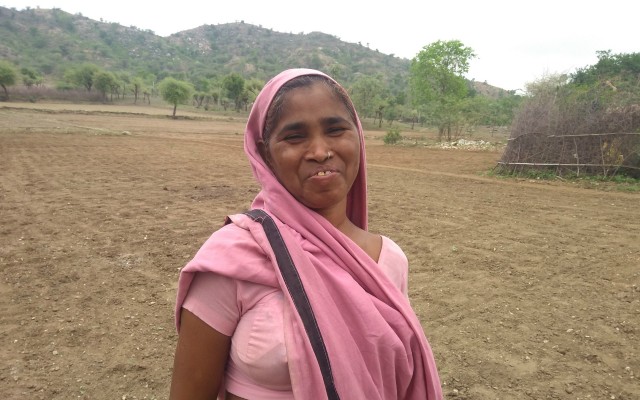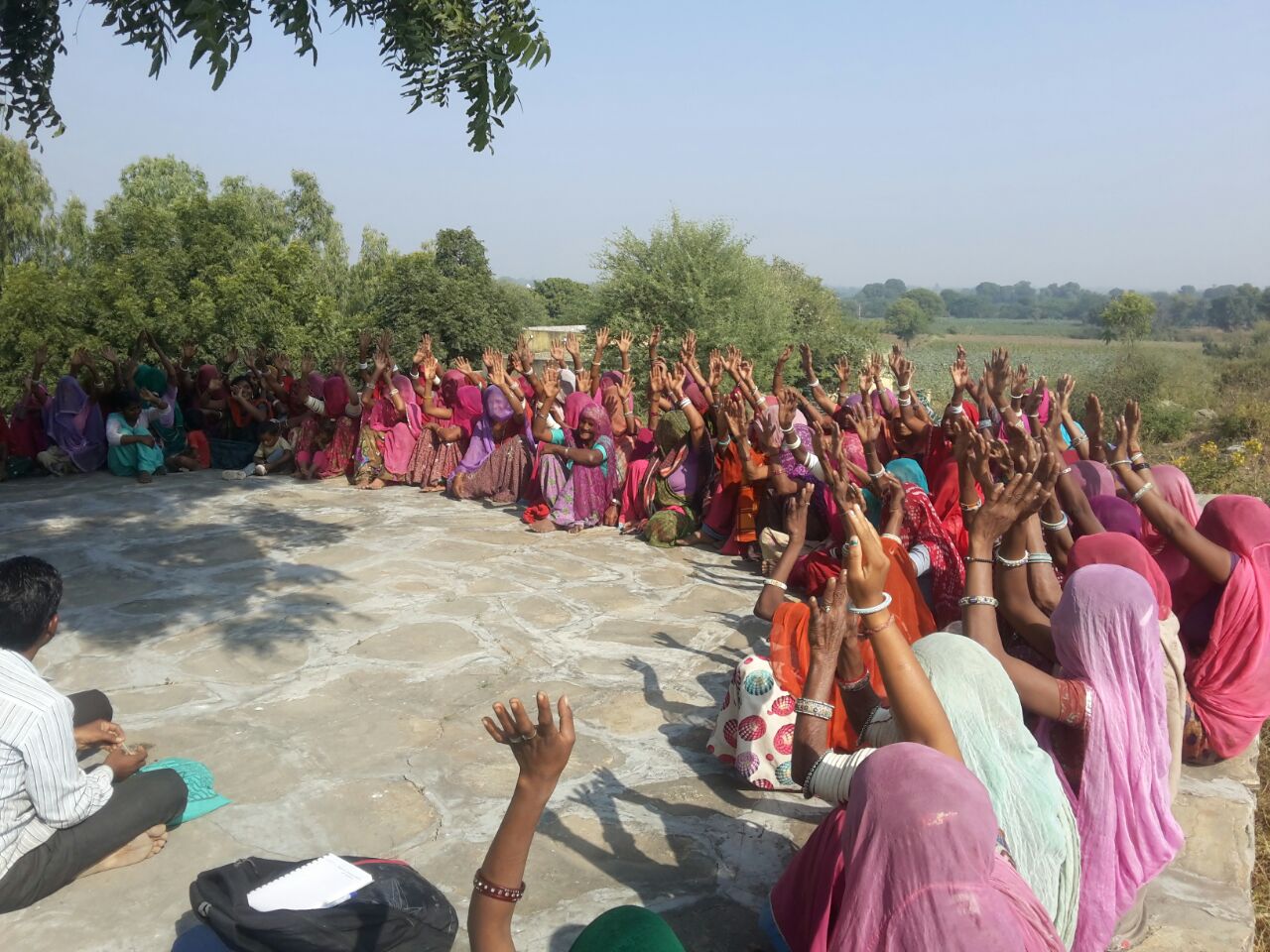The Story of Nathi Bai and her toilet

The following story is about SUSTAINABILITY.
It is not just about Nathi Bai’s new toilet—it is about the integrated process that makes her toilet sustainable. Sustainable for her, sustainable for her family, and sustainable for her community.
Nathi Bai lives in Bothara, a small village situated in the deep tribal Pali District area of the State of Rajasthan, in India. Most of the 170 households in her village belong to tribal people who are not part of India’s caste system, and so who are marginalized and deeply vulnerable. Most people in Nathi’s district practise open defecation.
At that point, Nathi did not know that her story was about to change.
The process of change began when Nathi Bai took part in a social art show whose aim was to inspire behaviour change related to adequate and sustainable practices around water, sanitation, and hygiene—which was an initiative of the Rajasthan project’s Social Art for Behaviour Change component. Nathi Bai really enjoyed the show—and it triggered in her the desire to build a toilet at home.
But with her husband ill, she was their family’s sole income earner and finances were tight, so finding money for a toilet was bound to be a challenge. As luck would have it, a team of community workers doing a follow-up campaign after the social art show approached her. They told her about the sanitation financing facility that had been initiated by the Centre for microFinance, One Drop’s executing partner for the Rajasthan project. The very next day, Nathi Bai applied for a loan to build a household toilet. Her loan was approved with the condition of building the toilet with the twin pit technology promoted by the project. The required construction materials were delivered to her home, and she received both technical assistance and the services of a trained mason to get her toilet built with the prescribed technology. Change in behaviours never happens from one day to the other and for it to be achievable and sustainable, it needs to be part of an integrated process that includes the three components of Access, Behaviour Change, and Capital.
Thanks to this combination of elements, today, Nathi Bai and her family have a toilet at home and practise healthy behaviours. Her strong will and determination made it possible, and now she is able to reduce health risks for her family, as she sparks positive change throughout her community.
